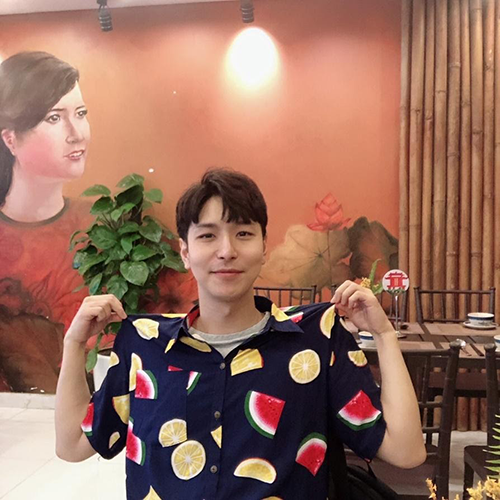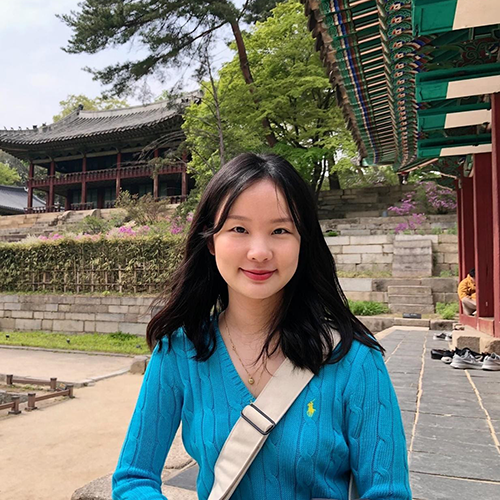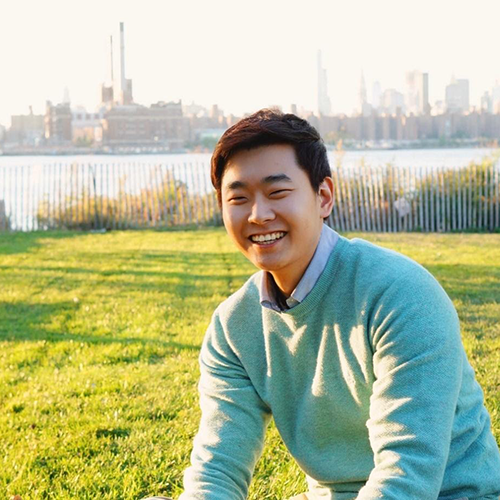South Korea’s next generation of strategists give their perspective on the discipline and its future, ahead of the WARC Awards for Asian strategy shortlist release.
South Korea has fared better than many markets in the region, with a reported GDP growth of 0.7% in the second quarter of this year. But the near future remains uncertain as new restrictions to contain an outbreak in the country dampen the outlook.
But that hasn’t stopped the nation’s young strategists from looking ahead and staying focused on honing their craft. Equipped with a mature and nuanced take on the role their profession plays in the bigger marketing picture, these up-and-coming minds are driven by the desire to make their mark via truly innovative thinking and strategies.
Wonjung Brian Kim

Title: Senior Strategic Planner
Company: McCann Worldgroup Korea
Age: 32
How did you find your way into strategy work?
I’ve always had an interest in advertising, majoring in the subject during my undergraduate studies and starting out my career at an advertising agency. I hadn’t heard about strategy roles and the precious opportunity to move into this discipline came by completely by chance.
One day, I was recommended for an open strategy position at the agency that I was working at. I was very happy to be offered a position that I’d always wanted to try but was worried about whether I could actually do it! I was encouraged by the director, who had seen my existing way of working and who reassured me that I should make the transition. So I accepted the strategy job and have never regretted that decision.
How do you personally define the discipline of marketing strategy?
Strategy, for me, is an insightful marketing direction and solution that emerges from the understanding and analysis of a brand’s business context and who their target audience is.
I think the most powerful strategy (marketing solution and direction) is something that anyone can easily understand and empathise with right away when they see it but that everyone was missing previously (or something that no one had ever thought about before).
What’s on your wish list in terms of strategic thinking/work?
Deriving a meaningful strategy takes a lot of time and needs to be reviewed from various angles. Therefore, I would like the luxury of being able to take plenty of time to ponder – wishful thinking I know in the fast-paced agency world!
In terms of specific categories, ever since starting out in advertising, I have always dreamed of working with soft drink brands, such as Coca-Cola, because I’m such a fan (McCann made my dream come true!) Whether sports or fashion next, I think there’s no better opportunity than to work on a brand that you personally love and connect with.
Where do you see yourself working in 5-10 years?
In today's world, where no one can know what will happen in a day or two, it is not easy to predict what’s ahead of me in 5-10 years.
However, if I can continue my career as a strategic planner in an advertising agency, I would like to be someone with a great portfolio of strategy experience across various fields/verticals. Being a specialist in a particular field is attractive but being a person with understanding and experience across various fields is my ambition.
Where do you see strategy going in the next 10-15 years?
I think the essence of strategy as a discipline will not change. However, just as the current social environment has become more dynamic today than in the past and technologies continue to evolve at a rapid pace, so strategic approaches will need to become ever more sophisticated.
I’m sure that consumer segmentation will become more diverse, and the data and tools that can analyse a specific brand will also be more extensive. Perhaps we need a strategy for finding the latest insights and responding to an ever-changing environment!
Wanhee Chung

Title: Associate Solution Consultant
Company: Cheil Worldwide
Age: 27
How did you find your way into strategy work?
To answer the question with full disclosure, I must admit that even though I studied marketing management in college, I never imagined becoming a strategist during my studies. I hadn’t yet had any practical experience in marketing, so I just had a vague idea of just pursuing marketing in general.
During my senior year, I applied for my first internship in marketing at Yuhan-Kimberly, a health and hygiene products manufacturer in Korea. Before my internship, I thought the essence of marketing was to be creative and to generate completely original, never-before-seen ideas. However, during my internship, instead of learning how to become more creative, I discovered the true beauty of drawing insight from data and found that by observing consumer behaviour and conducting analysis, ideas come naturally. It was an invaluable experience that led me to the path I wanted to pursue in my career.
After that first internship, I applied at an advertising agency for a strategist position because the internship experience had taught me that I thrive in an environment where I am given enough time to do research, observe and think. After a couple of years of working as a strategist, I knew I made the right decision.
As a strategist, how do you spend your time at work?
When we embark on a new project, the first thing we do is research. I google a lot! Our research comes from diverse sources such as articles, personal blogs, focus group interviews, etc. I even reach out to my friends, including those that I haven’t spoken with for a long time to conduct an interview. As our clients come from various industries, we allocate quite a lot of time on pre-studying. We may be sitting down as we collect data but the key is to keep our brains moving to understand trends and draw meaningful insights.
After that rigorous process, we develop strategies based on the insights from our research. They provide the direction brands should follow and what kind of message brands should deliver.
Our job does not end there. We also get involved in the creative development process. The strategists look at numerous references to help creatives build and refine their ideas. From my experience, the best results were always delivered when the creatives, the strategists and the account executives collaborate and inspire each other.
How do you personally define the discipline of marketing strategy?
For me, personally, the discipline of marketing strategy is pretty simple: identify and define the problem and find the right solution.
I believe that identifying and defining the problem is the first and foremost thing that a strategist should do. Problems can be caused by a lack of awareness, out-of-date brand image and many other reasons. Most of the time, clients state what they think is the problem in a brief and our job is to objectively determine whether it is the real threat that this brand is facing and, if not, redefine it.
There were several times when I could not find the right solution/message for a brand no matter how much time and effort was put in. Later, I found out that it was because I did not identify the problem of the brand properly. Clearly defining the problem gives us a clear objective and it shows how much we understand the business landscape and client’s needs.
In order to provide a solution that exquisitely solves the identified problem, we need to study consumer trends and understand what drives such behaviour. It requires robust research and analysis but when the work is completed, it is extremely fulfilling.
What’s on your wish list in terms of strategic thinking/work?
Not just as a strategist but also as someone who works at an advertising agency, one day I hope to create a marketing campaign that will become a benchmark for the future. As great ideas don’t stem from just one person, it is important to have a working environment where every voice is heard. As a team we need to trust one another and freely exchange ideas.
The relationship between the client and agency is just as important as the relationship among colleagues. We need our clients to be on board with us. I think that the best strategic work comes from a collaboration between clients and their agency from the very beginning of the project. This type of relationship can build the foundation for better strategies and allow the creatives to capture the minds of consumers.
Where do you see yourself working in 5-10 years?
In the short term, I would like to strengthen my expertise as a strategist. Working as a strategist, I am acquiring a lot of experience from clients in diverse industries. I want to be equipped with the right skill set necessary to understand the clients’ needs and provide solutions regardless of which industry they are in. It is challenging but it gives me vast opportunities to constantly learn and grow; this is what motivates me to continue pursuing my career as a strategist. And luckily, I am surrounded by people who I can really learn from. I wish to become one of the most innovative thinkers and an inspiration to others.
In the long term, I would like to work on the brand side. I’m not quite sure which industry intrigues me the most yet. However, being in charge of one brand, getting my hands on exclusive consumer behaviour data that the agency usually cannot get access to and resolving their long-term business challenges are definitely something I want to explore.
Where do you see strategy going in the next 10-15 years?
Earlier this year, I applied for an exchange program at my company and had the opportunity to work in the digital marketing department. There, I witnessed new technologies and data reshaping the consumer experience.
With the advancement of technology, consumers are presented more and more with proactive, AI-driven solutions, which present them with personalised solutions or products. As AI is particularly good at identifying potential customers through clustering and pattern matching, tailoring messages through hyper-personalisation, and finding the best times and means to communicate, it may seem as if the role and activities of marketers/strategists are diminishing.
On the contrary, I am certain that strategy will receive more emphasis in ad agencies because machines and data alone cannot substitute human common sense. We still need to interpret the data generated by the new technology using our understanding of consumer experience and the ability to draw insights.
Finally, I also believe that in order for strategists to thrive in this new era of strategy, we need to shift from analysing based on the attitudinal data to analysing based on the behavioural data. We should also actively accept that the expected output is shifting from concept-oriented to experience design.
Song Joon Kim

Title: Account Planner
Company: TBWA Korea
Age: 30
How did you find your way into strategy work?
During my school years, I was interested in pursuing a career in film directing. Then I happened to read a marketing strategy proposal, which I found interesting and opened a totally new world I wanted to learn more about, and that’s how I changed my mind to apply for an advertising agency.
As a strategist, how do you spend your time at work?
My time is spent writing proposals, ideation, market research and data mining. I attend a lot of meetings, both internally and externally. I also enjoy watching and picking apart newly launched ads in Korea and overseas. I read a lot, covering a range of fields such as marketing, of course, current affairs, economics, business, innovation… the list goes on. Reading keeps me informed, keeps me curious and allows me to pick up on trends.
How do you personally define the discipline of marketing strategy?
Marketing strategy should be the handbook of every marketing task. Like a company handbook given to new employees to introduce the company and guide them about company structure and regulations, I believe the marketing strategy should briefly but clearly indicate the direction of products, campaigns and projects.
What’s on your wish list in terms of strategic thinking/work?
I’d like to work with clients not only at the communication stage but also at stages prior to the communication. For example, from product planning, launching to communication, I believe there’s something I can obviously contribute because I’m on the agency side, not the client side.
Where do you see yourself working in 5-10 years?
I used to set long-term goals in my life and accomplish one by one. However, I try not to these days as so many things happen unexpectedly in today’s world. Therefore, I do my best to fulfill given tasks as they come and try to make decisions for what I think is right. Although it seems vague for the moment, in the very long run, I’d like to create literally “my brand” from scratch by myself.
Where do you see strategy going in the next 10-15 years?
Things that need to be handled immediately have been increasing for the market, consumers and clients. In this case, whether it’s intentional or not, strategies could be overlooked in terms of execution. Under such circumstances, I think not losing strategic core and congruency/consistency of strategy and execution will become more important in the future.
WARC Awards for Asian Strategy
The WARC Awards for Asian Strategy is now closed for entries and the judging phase has now commenced. Do stay tuned as the shortlisted papers will be announced on 15 September 2021.

